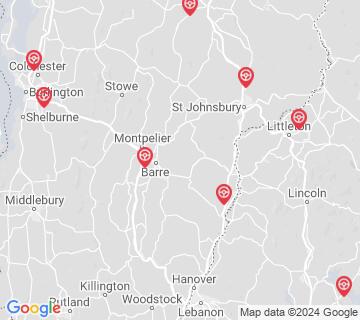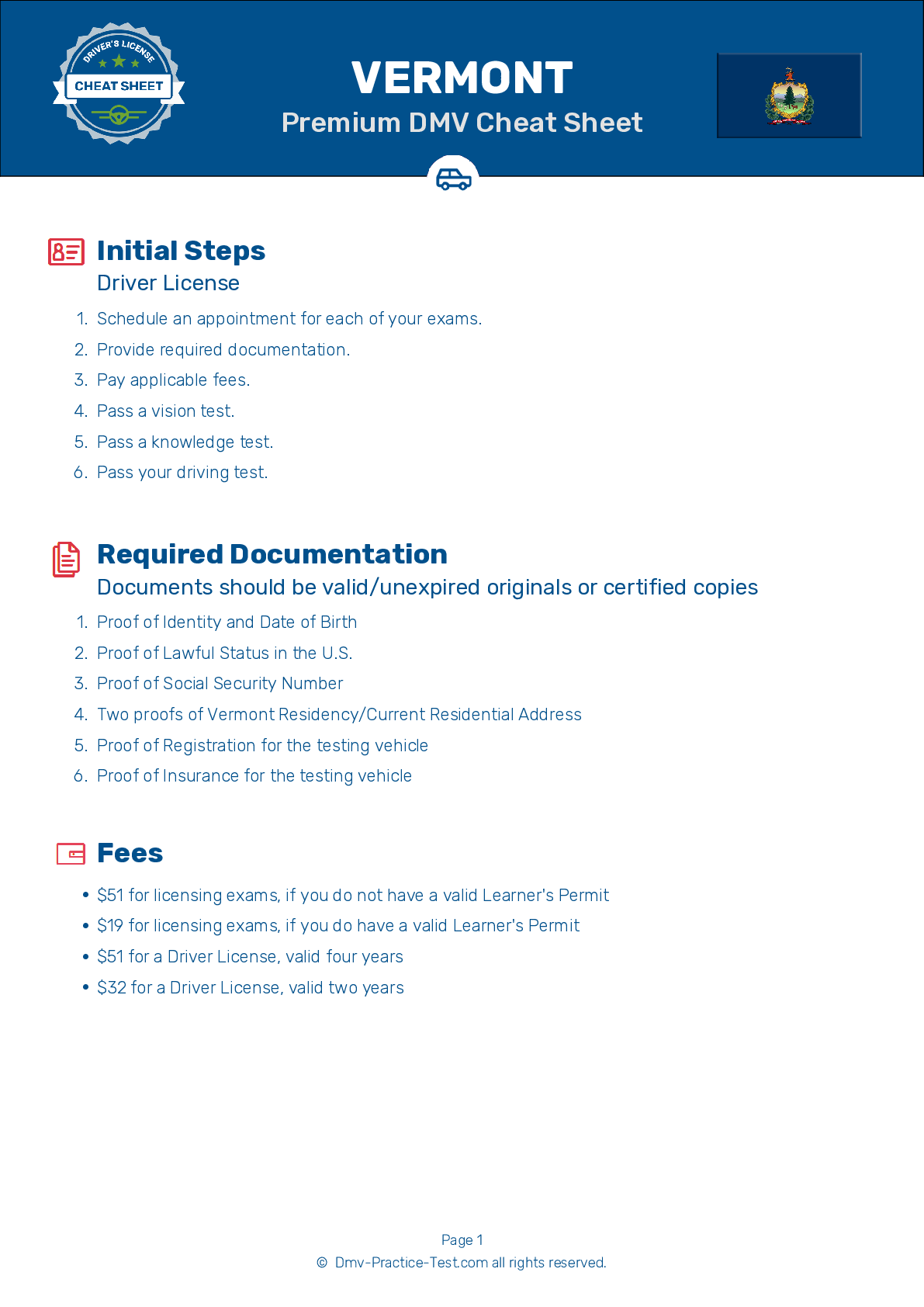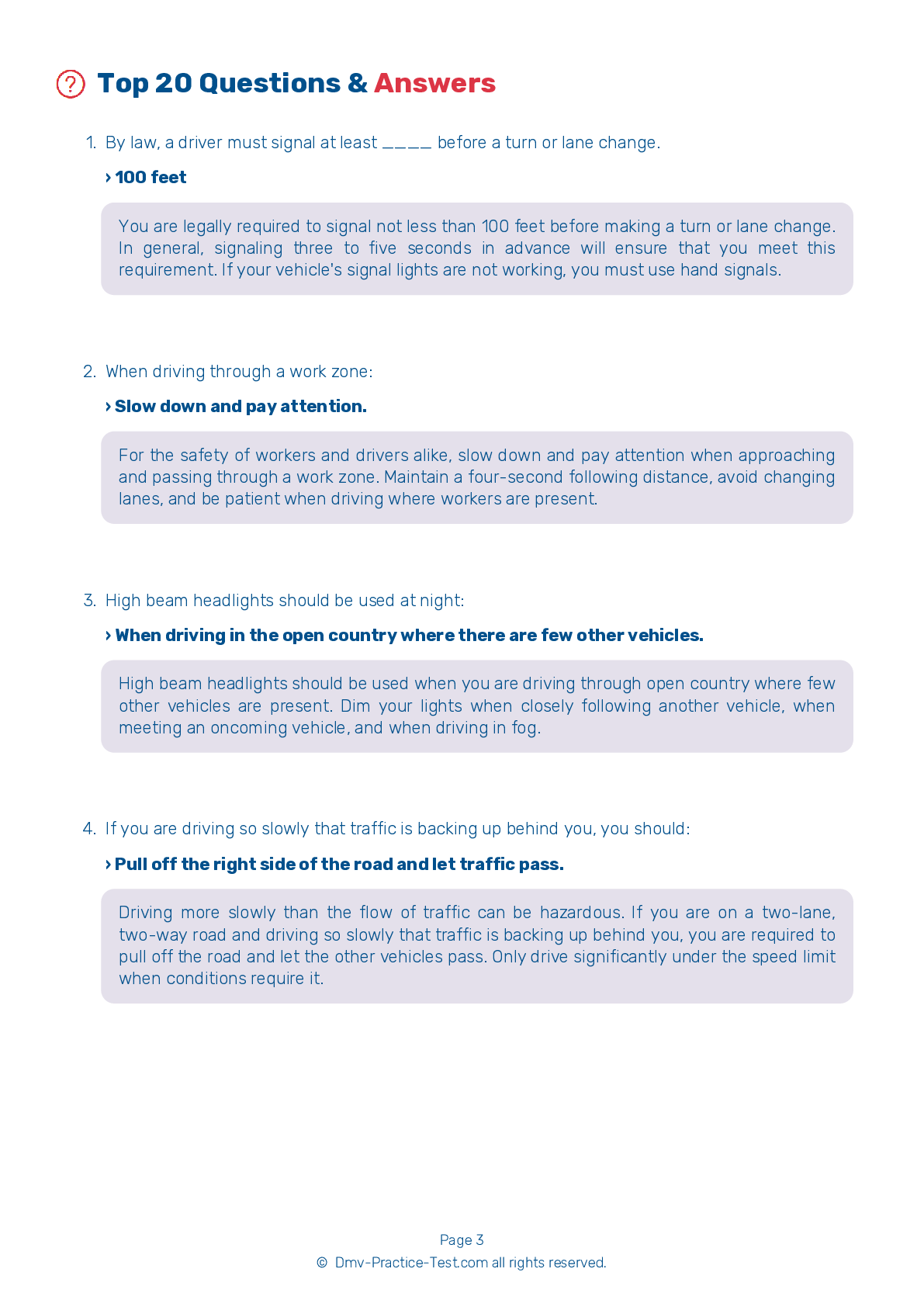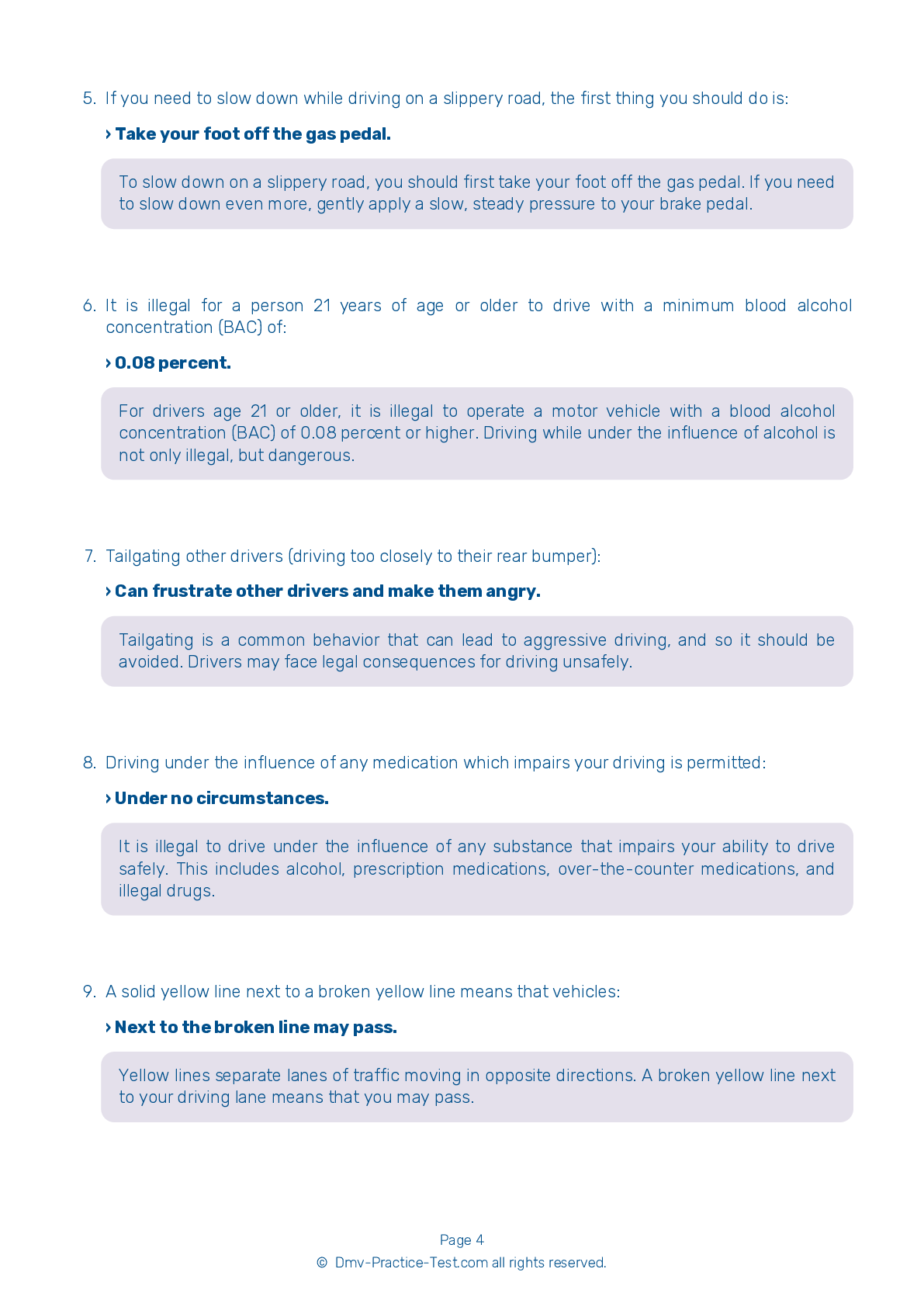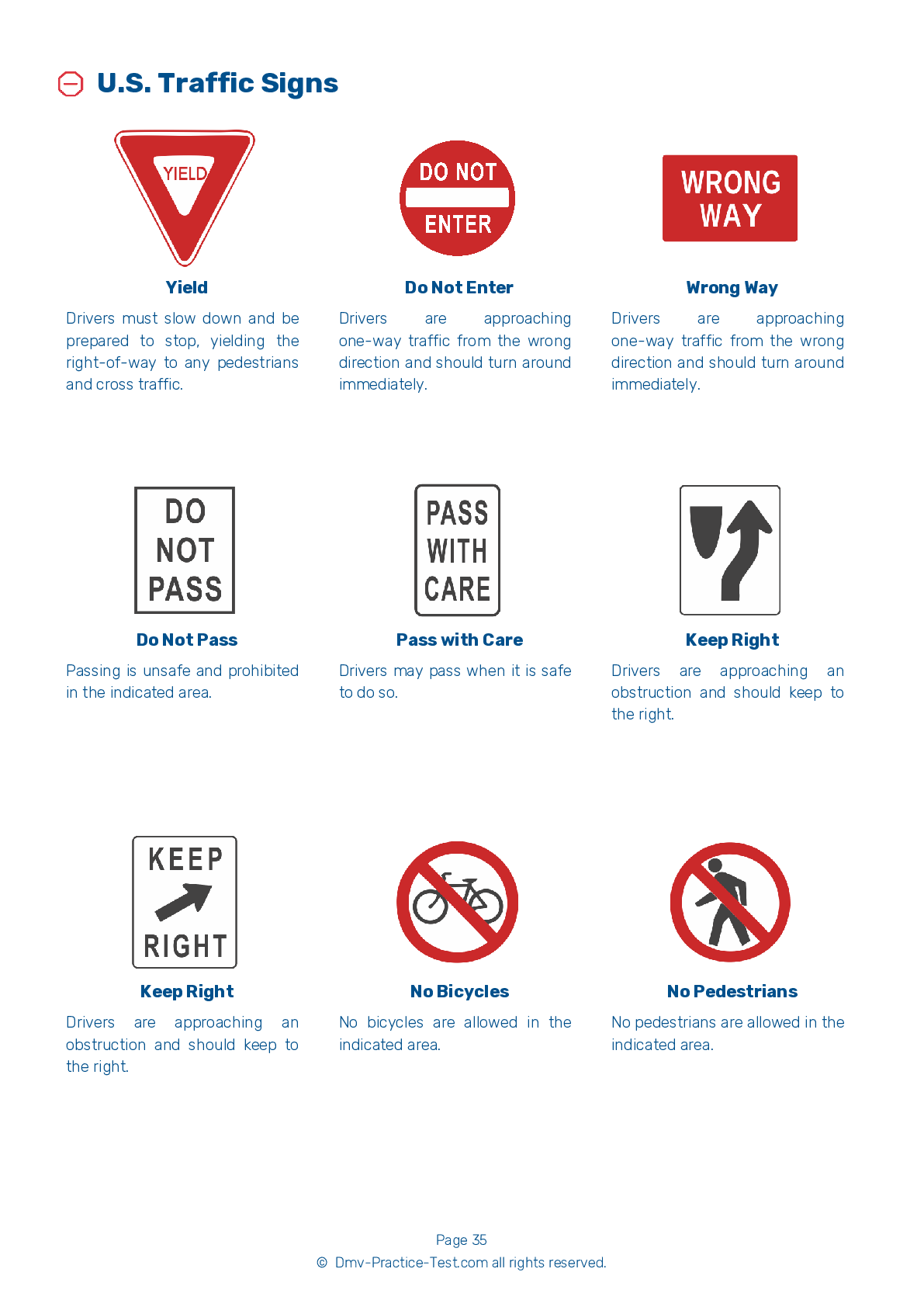FREE Vermont DMV Practice Test #2
The Vermont DMV practise examinations have been updated for January 2026. It includes questions based on the Vermont Driver Handbook's most significant traffic signals and legislation for 2026. Use actual questions that are very similar (often identical!) to the DMV driving permit test and driver's licence exam to study for the DMV driving permit test and driver's licence exam.
On the practise exam, each question gets a tip and explanation to help you remember the concepts. The written component of the official Vermont DMV test will include questions about traffic rules, traffic signs, and driving statutes, as well as knowledge from the Driver Handbook.
To obtain a passing grade, you must correctly answer 16 of the 20 questions. Use the practise exam provided by the Vermont Department of Motor Vehicles to help you prepare for your instruction permit or driver's licence.
The DMV exam is available in several languages.
Using any kind of testing assistance will result in an automatic fail, and the DMV may take additional action against your driver's licence, so stay away from it.
1 . A traffic light displaying a green arrow and a red light means that:
If a green arrow is shown with a red light, you can only drive in the direction of the arrow and only if the intersection is clear.
2 . A seat belt should be adjusted so that it:
Lap belts should fit snugly across your hip bones and the lower part of your abdomen. Shoulder belts should sit comfortably so that you can insert your fist between the belt and your chest.
3 . Which of the following are used on some highways to direct drivers into the proper lanes for turning?
Arrows may be used to indicate which lanes should be used for specific purposes, such as driving straight or making a turn.
4 . Which is not a factor in determining the distance that it takes to stop your vehicle?
The distance required to stop your vehicle depends on perception time, reaction distance, and braking distance. This changes with speed and road conditions.
5 . What does this road sign mean?
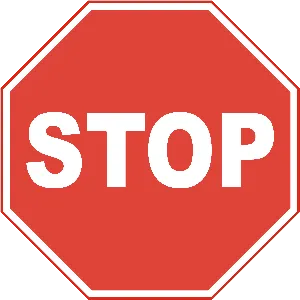
A stop sign means that you must come to a full stop and yield the right-of-way to vehicles and pedestrians in or heading toward the intersection. Go again when it is safe.
6 . To check your blind spot when changing lanes to the left, you should glance:
To check your blind spot, glance over your shoulder in the direction that you want to move.
Search the best driving school in your neighbourhood
2026 Vermont | Frequently Asked Questions
1. Not checking mirrors and blind spots before changing lanes or turning.
2. Speeding or driving too slowly for the conditions or posted speed limit.
3. Not coming to a complete stop at stop signs or red lights.
4. Incorrect signalling or not signalling at all.
5. Poor parking, especially parallel parking.
Remember, practice makes perfect, so take time to hone your skills.
